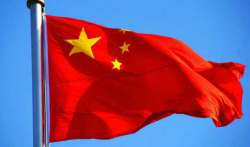As world awaits verdict on South China Sea today, Beijing talks of military reaction
Beijing: With the Permanent Court of Arbitration in The Hague expected to give a ruling in the dispute between the Philippines and China over maritime claims in the South China Sea over the latter's right

Beijing: With the Permanent Court of Arbitration in The Hague expected to give a ruling in the dispute between the Philippines and China over maritime claims in the South China Sea over the latter's right to exploit the resources across vast swathes of the strategic territory, there are several concerns over the verdict fuelling tensions in the region.
In late 2012, shortly after China forcibly wrested control of the Philippine-claimed Scarborough Shoal, which falls well within Manila’s Exclusive Economic Zone (EEZ) but is located 900 kilometers from the nearest Chinese coastline, Philippine President Benigno Aquino decided to take the case to an arbitration body.
The verdict is expected to come out on July 12. Most experts agree that the outcome will be largely unfavorable to China.
However, China has boycotted the hearings at the Permanent Court of Arbitration, saying it does not have jurisdiction to decide on the matter. The ruling is expected to further increase tensions in the region, where China's increased military assertiveness has spread concern among its smaller neighbours and is a point of confrontation with the United States.
Calling for national unity ahead of today's verdict, state media directed its ire against US and Japan saying that Beijing should be on high alert if tensions escalate putting to test the PLA's military strength.
"So far, none of the concerned parties want military confrontation. But all are ratcheting up military preparations. The South China Sea has been clouded by unprecedented tensions. It's uncertain where the situation will head to," it said.
"Whether the arbitration will lead to a severe geopolitical crisis has come under the global spotlight," it said in its editorial titled "China's reaction to arbitration depends on provocation".
"We believe the Chinese government must have made a series of contingency plans to deal with subsequent actions. What actions China may take on Huangyan and Ren'ai, (the area under contention) and whether China will announce a SCS Air Defence Identification Zone (ADIZ) depends on the reactions of Philippines to the arbitration result and the degree of US and Japanese provocations," it said.
"The US and Japan have claimed that relevant countries, including China, should comply with the arbitration result.
They stand in sharp confrontation with China, which has announced that the award would be 'nothing but a piece of paper'," state-run Global Times said ahead of the verdict of the five-judge arbitral tribunal constituted Permanent Court of Arbitration adjudicating on the Philippines' petition against China's claims.
Besides accusing China of taking control of the area around 140 miles from its coast, the Philippines' petition asked the international tribunal to reject China's claim to sovereignty over waters within a 'nine-dash line' that appears on official Chinese maps.
The U-shaped line represents China's claims to as much as 90 per cent of the South China Sea (SCS) important for global trade and rich in natural resources, including oil deposits.
A similar editorial China Daily, another state-run newspaper, said, "The United States and some of its allies are already eyeing Tuesday as a day of triumph, as they believe the Arbitral Tribunal in the South China Sea arbitration will rule against China in a case unilaterally brought by the Philippines over their South China Sea dispute. Much fanfare can be expected should the farce directed by Washington finally reach the climax it anticipates".
China claims almost all of the South China Sea but its claim is firmly contested by the Philippines, Vietnam, Malaysia, Brunei and Taiwan which have overlapping claims over the area.
(PTI inputs)